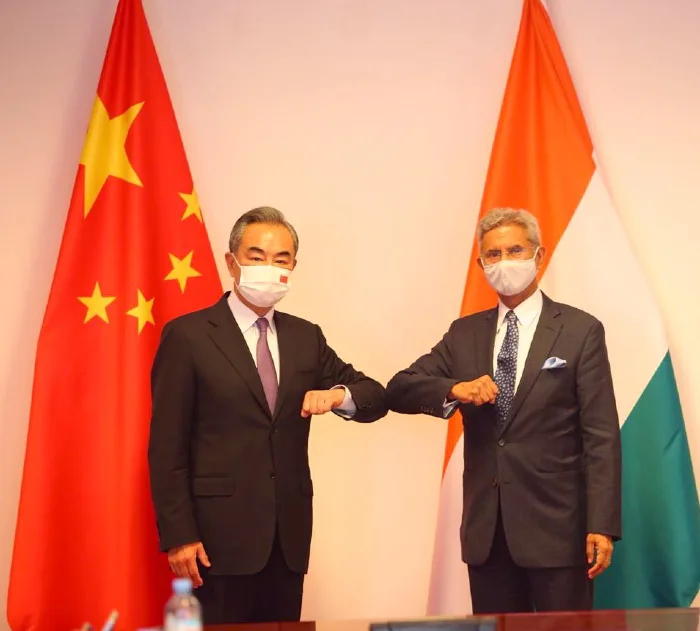India and China appear to have made an important effort to reboot ties following talks between External Affairs Minister S Jaishankar and his Chinese counterpart Wang Yi in Dushanbe on Thursday evening.
But, as in the past, progress is taking place at a glacial pace, with the status quo being maintained in certain important areas.
Three points stand out.
First, Jaishankar touched upon China’s core concern that India was allying with the United States to contain China’s rise. The Chinese have been miffed by India's earlier enthusiasm for the Indo-Pacific QUAD—a grouping which also includes the United States, Japan and Australia. Recently, India has been at pains to focus instead of the military, the humanitarian dimensions of the QUAD, include joint development of vaccines and the Humanitarian and Disaster Relief (HADR) operations. The formation of the Australia, UK, US (AUKUS) security grouping sans India and Japan could also help reassure Beijing that New Delhi is not part of a collective arrangement that targets China, though bilateral security problems such as border differences between the two neighbours remain.
Jaishankar was categorical in reassuring Wang that India was not bonding with the US in a collective anti-China club. Specifically, Jaishankar said it was essential that China "does not view its relations with India through the lens of a third country".
Second, the two top diplomats revealed that their approach to resolving differences in eastern Ladakh remain. For Jaishankar disengagement in Ladakh is incomplete, and other friction points remain so that status quo ante pre-standoff in May 2020 can be restored along the Line of Actual Control.
"Discussed disengagement in our border areas. Underlined that progress in this regard is essential for restoration of peace and tranquillity, which is the basis for development of bilateral ties," tweeted Jaishankar after meeting Wang. The External Affairs Minister also made it plain that India-China ties can be normalised only after border disengagement has been accomplished
On the border, Wang did not concur with Jaishankar’s view. The Chinese signalled that India-China ties should move on, and agreement on the rest of the friction points in Ladakh should not stand in the way of normalisation.
"Both sides need to consolidate the disengagement results of the front-line troops, and strictly abide by the protocols and agreements and the consensus reached between the two countries, to jointly safeguard the peace and tranquillity of the border area and prevent the recurrence of border-related issues," Wang was quoted as saying by the Chinese foreign ministry.
Nevertheless, Wang praised recent communication between the two foreign affairs and military departments, saying that the dialogue was earnest and effective, and the overall situation in the border area was gradually de-escalated.
Third, both Jaishankar and Wang stressed that despite their differences both countries had the positive intent to improve ties.
Jaishankar stressed that India and China must set an example of demonstrating Asian solidarity.
"Also exchanged views on global developments. Emphasized that India does not subscribe to any clash of civilisations theory. As for Asian solidarity, it is for China and India to set an example," Jaishankar added in a series of tweets.
Wang on his part spotlighted that both countries should revive healthy and stable practical cooperation. He added that India-China bonhomie serves the common interests of the two countries and benefits regional and world peace and development.
Also Read: India has not allied with the US to contain China – Jaishankar's message to Wang Yi




















